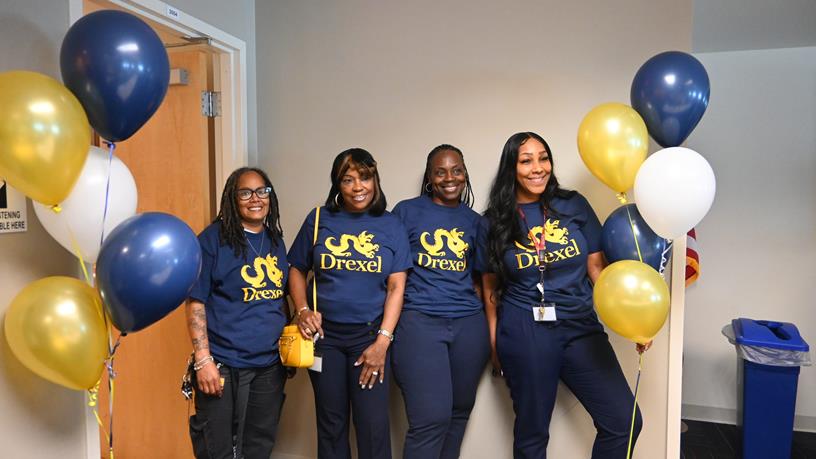
Introducing the Drexel University Elkins Park Campus
Drexel University and Salus University have formally received approval from the US Department of Education, specialized accreditors and additional third parties, signaling completion of the merger and establishment of Drexel University's Elkins Park Campus.
This page contains the latest available information, please check back for regular updates.

The merger, complete after a two-step process, brings together the complementary strengths of both institutions in graduate health sciences education, research, and clinical practice. It strengthens Drexel’s place as a leader in preparing future interprofessional health sciences practitioners by adding renowned Salus graduate degree programs such as optometry, audiology, blindness and low vision studies, speech-language pathology, occupational therapy, and orthotics and prosthetics. In addition, the merger now expands our physician assistant program, graduate enrollment, and promotes interdisciplinary research opportunities in new areas.

Drexel provost Paul Jensen, PhD and Bre Myers, AuD ‘06, PhD ‘17, CH-AP, assistant dean of Osborne Audiology, raise the Drexel flag at the Elkins Park campus.
The two universities formed an Integration Council, comprising faculty and professional staff, which addressed how academic programs integrated within Drexel's structure. The work of the Integration Council was integral to completion of the merger.






